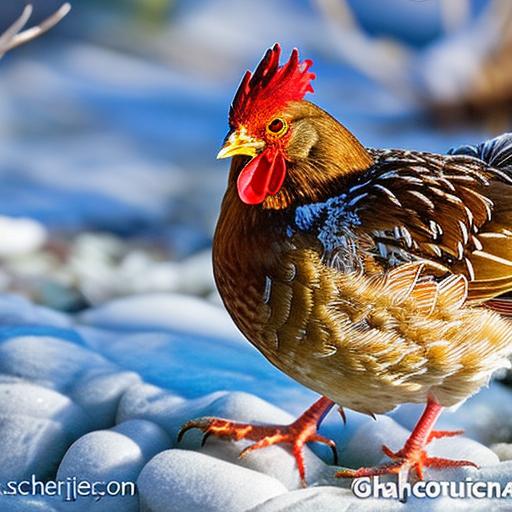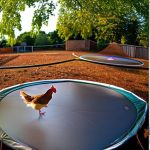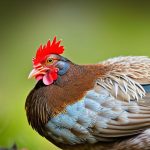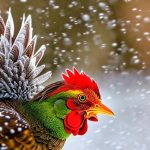Keeping your chickens hydrated is crucial for their health and well-being. Just like any other living creature, chickens need access to clean and fresh water to survive. During the winter months, water sources can freeze, making it difficult for chickens to access the water they need. In this blog post, we’ll discuss ways to prevent water from freezing in your chicken coop, ensuring that your feathered friends stay happy and healthy all winter long.
Key Takeaways
- Keeping your chicken’s water from freezing is important for their health and well-being.
- Understanding the science behind freezing water and its effects on chickens can help you choose the right watering system.
- Insulating your watering system and using heated waterers can prevent freezing.
- Adding salt or sugar to your chicken’s water can lower its freezing point, and warm water can be used to thaw frozen waterers.
- Preventing water spills and splashes can also help avoid freezing and keep your chickens happy and healthy all winter long.
Understanding the Science Behind Freezing Water and Its Effects on Chickens
Water freezes at 32°F (0°C), which means that during the winter months, it’s common for water sources to freeze over. This can be a problem for chickens as they rely on water to regulate their body temperature and stay hydrated. Without access to water, chickens can become dehydrated, which can lead to a range of health problems and even death.
Dehydration in chickens can cause reduced egg production, poor growth, decreased immune function, and even organ failure. It’s important to ensure that your chickens have access to fresh water at all times, even during the winter months when freezing temperatures are a concern.
Choosing the Right Watering System for Your Chicken Coop
When it comes to choosing a watering system for your chicken coop, there are several options to consider. Gravity-fed waterers are a popular choice as they are easy to use and require minimal maintenance. These waterers rely on gravity to fill the drinking cups or nipples with water as the chickens drink.
Nipple waterers are another option that can be effective in preventing freezing. These waterers have small metal nipples that release water when chickens peck at them. They are easy to install and can be attached to a bucket or PVC pipe.
Cup waterers are also commonly used in chicken coops. These waterers have small cups that fill with water as chickens drink. They are easy to clean and can be attached to a bucket or PVC pipe.
When choosing a watering system, consider the size of your flock and the climate in your area. Gravity-fed waterers may be suitable for smaller flocks, while nipple or cup waterers may be more appropriate for larger flocks. Additionally, if you live in an area with extremely cold temperatures, you may want to consider a heated waterer to prevent freezing.
Insulating Your Watering System to Prevent Freezing
| Insulating Your Watering System to Prevent Freezing |
|---|
| Benefits |
| – Prevents water from freezing in pipes and causing damage |
| – Saves money on repairs and replacements |
| – Extends the life of your watering system |
| Materials Needed |
| – Insulation tape or foam |
| – Heat tape or cables |
| – Pipe sleeves or wraps |
| Steps |
| 1. Turn off the water supply to your watering system |
| 2. Wrap insulation tape or foam around exposed pipes |
| 3. Install heat tape or cables on pipes that are prone to freezing |
| 4. Cover pipes with pipe sleeves or wraps |
| 5. Turn the water supply back on and check for leaks |
Insulating your watering system can help prevent water from freezing. One option is to use foam insulation around the waterer to provide an extra layer of protection against the cold. Foam insulation can be easily cut to fit around the waterer and secured with tape or zip ties.
Another option is to wrap your waterer with a heat tape. Heat tape is a flexible heating element that can be wrapped around the waterer and plugged into an electrical outlet. It provides a constant source of heat to prevent freezing.
When insulating your watering system, make sure to leave access points for the chickens to drink from. You don’t want to completely cover the waterer and prevent them from accessing the water.
Using Heated Waterers to Keep Your Chicken’s Water from Freezing
If you live in an area with extremely cold temperatures, using a heated waterer may be the best option for preventing freezing. Heated waterers are specifically designed to keep water from freezing, even in sub-zero temperatures.
Heated waterers come in different sizes and styles to fit your needs. Some models have built-in thermostats that automatically turn on when the temperature drops below freezing, while others have adjustable settings that allow you to control the temperature.
When using a heated waterer, make sure to follow the manufacturer’s instructions and regularly check that it is working properly. It’s also important to keep the waterer clean and free from debris to ensure that the water remains fresh and safe for your chickens to drink.
Adding Salt or Sugar to Your Chicken’s Water to Lower Its Freezing Point
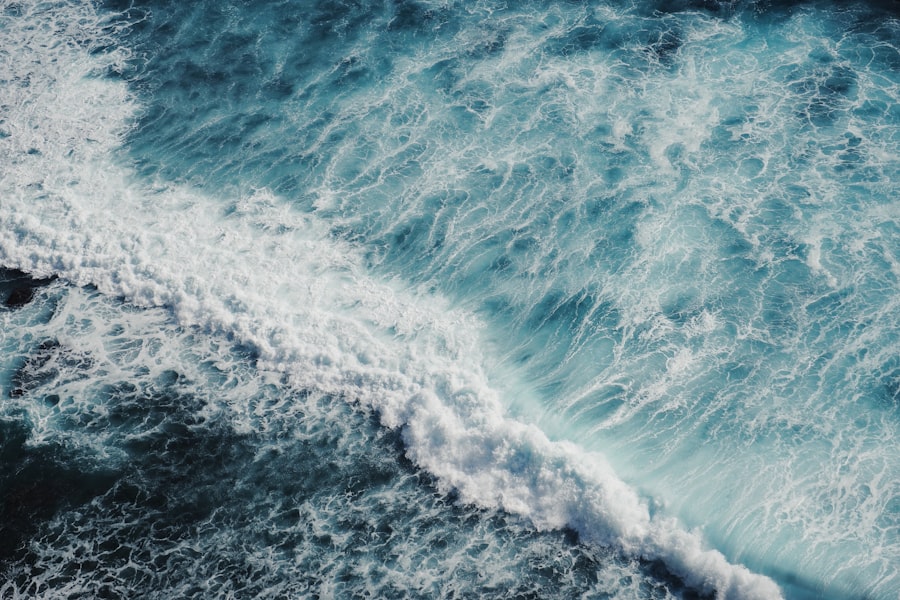
Another way to prevent water from freezing in your chicken coop is by adding a small amount of salt or sugar to the water. Both salt and sugar can lower the freezing point of water, making it less likely to freeze.
When adding salt or sugar to your chicken’s water, it’s important to be careful not to add too much. Excessive amounts of salt or sugar can be harmful to your chickens and may lead to health problems. It’s best to consult with a veterinarian or poultry expert for guidance on the appropriate amount to add.
Using Warm Water to Thaw Frozen Waterers
If your waterer has already frozen, you can use warm water to thaw it. Fill a container with warm water and carefully pour it over the frozen waterer. The warm water will help melt the ice and restore access to fresh water for your chickens.
It’s important to note that you should avoid using hot water to thaw a frozen waterer, as the sudden change in temperature can cause the waterer to crack or break. Stick with warm water and be patient as it may take some time for the ice to melt completely.
Creating a DIY Heating Pad for Your Chicken’s Waterer
If you’re looking for a budget-friendly option to keep your chicken’s water from freezing, you can create a DIY heating pad using a light bulb and a metal tray. Simply place the light bulb in the metal tray and position the waterer on top of it. The heat from the light bulb will help keep the water from freezing.
It’s important to monitor the temperature of the DIY heating pad regularly to ensure that it doesn’t get too hot and pose a fire hazard. Make sure that the light bulb is securely positioned and that there are no flammable materials nearby.
Preventing Water Spills and Splashes to Avoid Freezing
Water spills and splashes can freeze and make it difficult for chickens to access water. To prevent this, consider using a tray or mat under your waterer to catch spills and splashes. This will help keep the area around the waterer dry and prevent ice from forming.
Regularly check the tray or mat for any ice buildup and remove it to ensure that the water remains accessible to your chickens. It’s also a good idea to clean the tray or mat regularly to prevent the buildup of bacteria or other contaminants.
Keeping Your Chickens Happy and Healthy with Access to Fresh Water All Winter Long
By following the tips in this blog post, you can ensure that your chickens have access to fresh water all winter long. Remember to choose the right watering system for your chicken coop, insulate your waterer to prevent freezing, and consider using a heated waterer if necessary.
Adding salt or sugar to your chicken’s water can lower its freezing point, but be careful not to add too much. If your waterer does freeze, use warm water to thaw it, avoiding hot water that can cause damage. You can also create a DIY heating pad using a light bulb and a metal tray to keep the waterer warm.
Lastly, prevent water spills and splashes by using a tray or mat under your waterer. Regularly check the tray or mat for ice buildup and clean it as needed.
By taking these steps, you can ensure that your chickens stay happy and healthy throughout the winter months, with access to fresh water at all times.
If you’re a chicken owner, you know how important it is to keep their water from freezing during the winter months. Luckily, there are several methods you can use to prevent this issue. One effective solution is using a heater for your chicken coop. This article from Poultry Wizard provides valuable information on how to choose and install a heater that will keep your chickens’ water from freezing. Check out the article here for all the details.
FAQs
What causes chicken water to freeze?
Chicken water freezes due to low temperatures during winter or cold weather conditions. The water freezes when the temperature drops below 32°F (0°C).
Why is it important to keep chicken water from freezing?
It is important to keep chicken water from freezing because chickens need access to clean water at all times. Dehydration can lead to health problems and even death in chickens.
What are some ways to keep chicken water from freezing?
Some ways to keep chicken water from freezing include using heated waterers, adding insulation to the waterer, using a heated base, and using a water heater.
What is a heated waterer?
A heated waterer is a waterer that has a built-in heating element that keeps the water from freezing. It is designed to keep the water at a temperature above freezing point.
What is a heated base?
A heated base is a device that is placed under the waterer to keep the water from freezing. It is designed to keep the water at a temperature above freezing point.
What is a water heater?
A water heater is a device that is used to heat water. It can be used to keep chicken water from freezing by heating the water to a temperature above freezing point.
Meet Walter, the feathered-friend fanatic of Florida! Nestled in the sunshine state, Walter struts through life with his feathered companions, clucking his way to happiness. With a coop that’s fancier than a five-star hotel, he’s the Don Juan of the chicken world. When he’s not teaching his hens to do the cha-cha, you’ll find him in a heated debate with his prized rooster, Sir Clucks-a-Lot. Walter’s poultry passion is no yolk; he’s the sunny-side-up guy you never knew you needed in your flock of friends!

